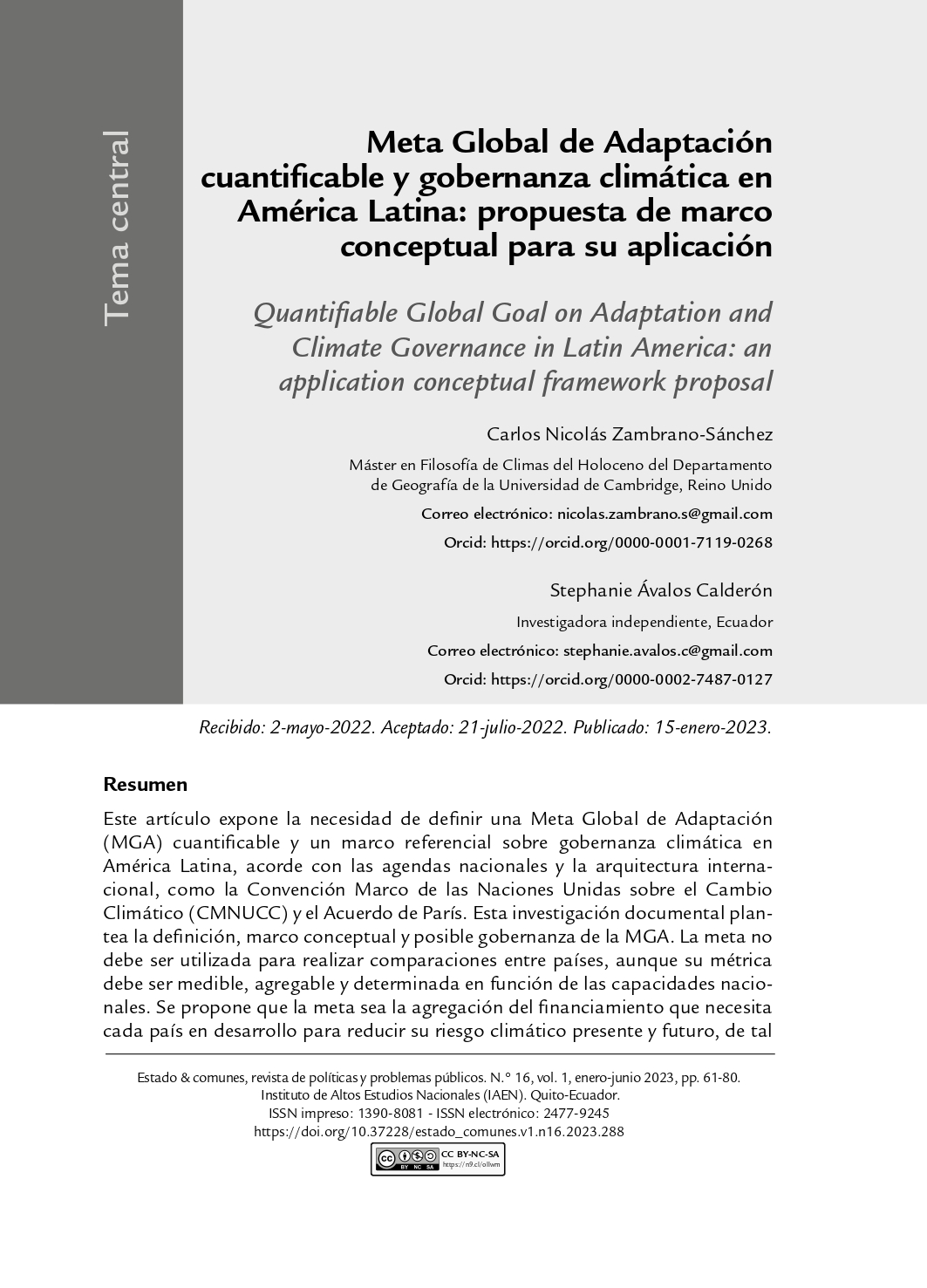Quantifiable Global Goal on Adaptation and Climate Governance in Latin America: a application conceptual framework proposal
Main Article Content
Abstract
t
This article addresses the need to define a quantifiable Global Goal on Adaptation (GGA) and a referential framework for climate governance in Latin America in accordance with the national agendas and international architecture as the United Nations Framework Convention on Climate Change (UNFCCC) and the Paris Agreement. This documentary research proposes a definition, conceptual framework, and possible governance for the GGA. The Goal should not be used as a basis for comparison between countries, though the metric should be measurable, aggregable, and determined in function of national circumstances. The Goal is proposed to be the aggregationof finance needed by each developing country to reduce its present and future climate risk so that its adaptive capacity gradually increases against a reference level updated every five years. Despite the adaptation efforts and planning, the question remains: who should finance adaptation measures?











